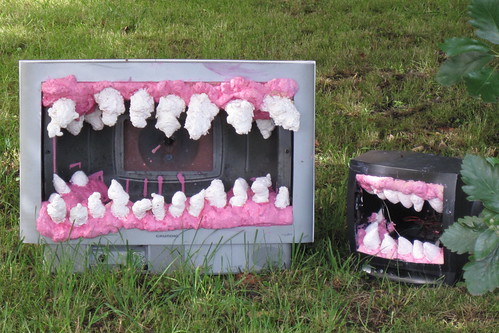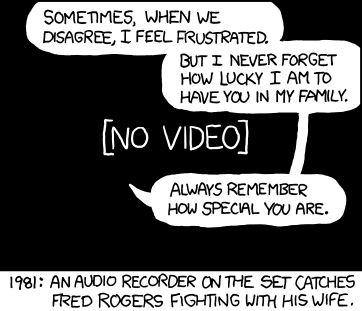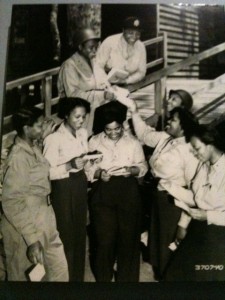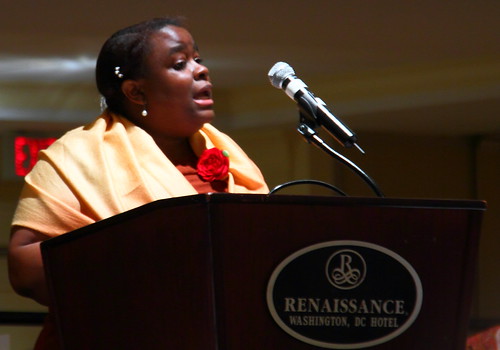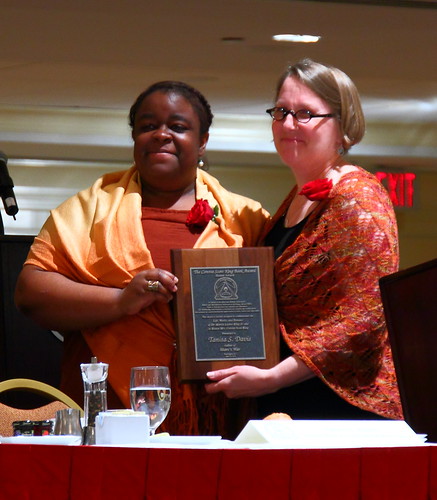Way back in January (because I am, if nothing else, completely on top of all trends and kidlitosphere conversations) quilting author and blogger Kyra blogged about who actually wins the Coretta Scott King Awards. It was an interesting bunch of statics, and a good post, and it reminded me of an observation I made about the CSK winners this year — all of them were awards for historical fiction.
Someone mentioned that historical fiction is always what wins — and I’d have to suspend comment on that until I could see some type of statistical compilation that backed that up. But I did remember wondering if that’s just the pool the CSK jury had to dip into, or if there’s a preference by the ALA juries and committees to award portrayals of African American history over other topics. Anyway – just an idle thought that I’ll look more into, when I have time. When I am not writing three books at once.
(WHY am I doing that? Because… it’s summer, the light [please note I did not say the sun – we’re having the worst gray overcast weather] still comes up at 4 a.m., and I am overflowing with twitchy, nervous energy — usually at two or three a.m., but energy nonetheless. We’ll see if it’s coherent energy, or just the blathering sort.)
Via Tor.com, Prolific paranormal/true crime/vampire writer L.A. Banks scares herself. (Is it wrong of me to snicker loudly at that?) I’d scare myself, too, if I wrote what she writes, in a darkened house, at 3 a.m…. L.A. Banks is one of the very few REALLY successful writers of color in the SFF community, and while she doesn’t write YA fiction… I’m hoping she might someday.
Meanwhile, art continues to flourish in my neighborhood. These are two of a series of toothy computer monitors and TV sets, just down at the corner — in the “back” yard of the same crescent I’m in. And I have no idea why there’s always art in that corner, but it’s usually Banksy-esque and always thought-provoking. This one is a cross between the Little Shop of Horrors Audrey, Jr. plant and those 70’s “Kill Your Television!” bumper stickers.
